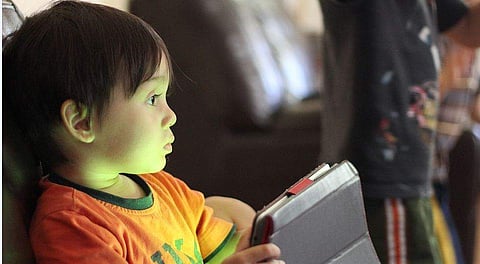

In the times of social media, smartphones aided with internet have become rife with propaganda, which not that often is straightforward but comes under the garb of communal, casteist, racist and misogynist jokes. Evidently, such content is found to be leaving a lasting impression on the minds of young children. This ‘sugarcoating’ of otherwise objectionable content has normalised communal and racist slurs, and children often fail to differentiate between the right and wrong of it.
So recently when Rohit, a Class VIII student, forwarded a meme of an Afro-american woman that read “even Tide would fail to make her fair”, he had no idea he was laughing at someone’s skin color and thus helping spread racism. Similarly, when Shubham, a Class X student received a picture of a random smiling girl, he found it fun to share it with his friends over WhatsApp. Shubham believed that sending a picture of a random girl to his friend is fine and has nothing to do with someone’s privacy as it was already available on internet.
Need to educate children
In such scenarios, there is a need to educate children on consumption of information on the internet.
S Harinath, additional commissioner of police (Cyber Crime), Rachakonda police, said that it is common for teens to access the social media platforms like Facebook, Instagram, WhatsApp, Snapchat, etc, where sharing of photos and personal information is common. “Recently, a class IX girl had shared her private pictures with an intermediate first-year boy, whom she knew, on his insistence. The parents approached us, but since both were minors we counselled the boy and let him off,” he said and added that the problem is that many children add strangers and expose themselves to child grooming or online sexual abuse.
In an incident of child grooming, a student of a renowned CSBE School had left home to meet her online friend, a 40-year-old man. Luckily, her parents managed to reach her before she left the city. Harinath says that though it is not possible to deal with the policy matters of the social media companies, caution by parent and awareness by schools is the way to avoid any unpleasant situation.
Parents should openly discuss with their wards
Noting that internet is not just a bane but also a boon, experts believe that it is high time parents start interacting with their wards, to begin with. Maya Sukumar, principal of Gitanjali School, Begumpet, recalls an incidents where she had called parents to tell them of the objectionable content their child had posted online, only to be rebutted by them on the grounds that the kids did not have a Facebook account or internet connection at home. “Later, I had to show them the account. The student revealed that he used a neighbour’s wifi to access it,” she said and added that for the past two years awareness programmes are being in school via teachers, experts and cybercrime officials.
“We talk to them about the do’s and don’ts of social media. We also believe that peer-to-peer interaction is more effective so we use peer group to create awareness. One important thing we tell boys is that no vengeance should be taken out on the social media platforms,” the principal said.
Though more and more schools are turning to the internet and gadgets for learning, they often ask parents not to give smartphones to children. Mohammed Rizwan, a teacher at Indus International School, says that children are strictly prohibited from bringing smartphones to schools. “In fact, we discourage parents from giving smartphones to students. At school, we have firewalls that block all objectionable content on the students’ laptops. We cannot write off the internet as a bane. There is a lot of information on it that’s good too. We just need to help children vet it out,” he said.
Child psychologists too believe that rather than curbing the flow of information, the children should be taught how to use it & told what is fun to laugh at and what constitutes abuse. “Children see elders as role models. More than parents and teachers words, their actions speak. Unless you have unconditional positive regard for them, children will never be able to come and discuss their problems with parents or even teachers, They will naturally seek solace from strangers,” said Radhika Acharya, city-based child-psychologist.
Keep these in mind
-Parents should monitor the online behaviour of their children.
-If they are ‘friends’ with their children on social media, they should keep a check on who their child’s friends are
-Awareness should be created in the school on online behaviour
-Children should be taught not to reveal personal information, photos or other details to strangers, especially online
-Children should be taught that people whom they find on the Internet may not be reliable
-Children should tell their parents if they find someone troubling them online
-Tell children not to add strangers
Children should be told that number of ‘likes’ or friends are not important
